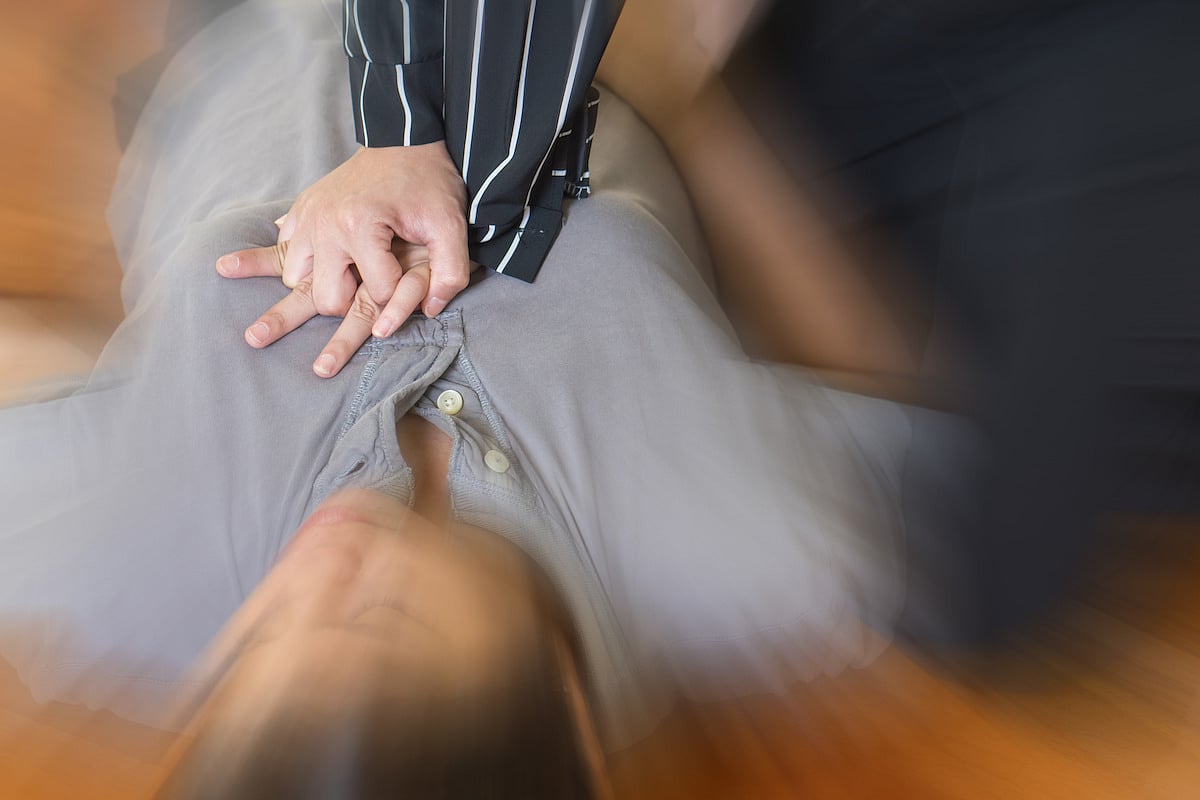THANK YOU!
Manténgase sano!

- Dennis Thompson
- Posted August 7, 2024
Bystander CPR More Likely to Save Your Life If You're White and Male: Study
Whites are three times more likely to survive a cardiac arrest after receiving bystander CPR than Black adults are, a new study has found.
Likewise, men are twice as likely to survive after bystander CPR than women, researchers found.
“CPR saves lives -- that, we know,†said researcher Dr. Paula Einhorn, a program officer at the National, Heart, Lung, and Blood Institute (NHLBI). “Yet the disparities revealed in this research show we need to do more understand how to ensure equitable outcomes for all patients needing CPR. We’re hoping new insights will lead to better survival for these patient groups.â€
For the study, researchers analyzed more than 623,000 cases of cardiac arrest that occurred in the United States between 2013 and 2022.
Among those cases, more than 58,000 people survived -- about 1 in 10.
Around 40% of cardiac arrest victims received CPR from a bystander before paramedics could arrive, researchers found.
On average, those who received bystander CPR had a 28% greater chance of surviving, compared to those who didn’t.
However, there were marked differences in survival based on gender and race.
Native American and white adults had the greatest benefit from bystander CPR, with their odds of surviving increasing by 40% and 33%, respectively.
On the other hand, Black adults were just 9% more likely to survive if they got bystander CPR.
Men and women also had significant differences in benefit. Men were 35% more likely to survive cardiac arrest with bystander CPR, compared to 15% for women.
Overall, Black women had the least survival benefit, with bystander CPR increasing their survival odds by 5%. White men had the greatest benefit, at 41%.
The findings were published Aug. 7 in the journal Circulation.
“It’s not just about whether bystander CPR was done, but was it done well for everyone so that, irrespective of race, ethnicity or sex, everyone can derive the same level of benefit from someone starting CPR?†said lead researcher Dr. Paul Chan, a cardiologist at Saint Luke’s Mid America Heart Institute in Kansas City, Mo.
“These findings suggest we need to have a more complex understanding of improving survival and whether CPR delivered by bystanders provides similar survival benefits to all patients,†Chan added in an NHLBI news release.
Future studies should look into the type of CPR training that bystanders have received, and whether any underlying health conditions affected the survival odds of cardiac arrest victims.
More information
The American Red Cross has more about CPR.
SOURCE: National Institutes of Health/National, Heart, Lung, and Blood Institute, news release, Aug. 7, 2024







